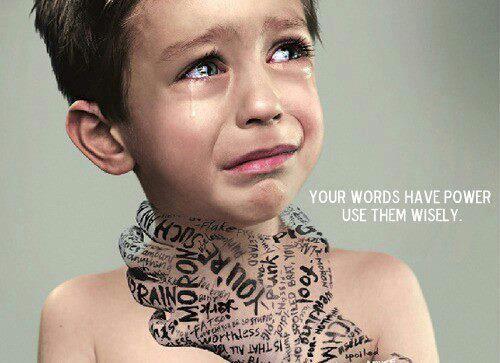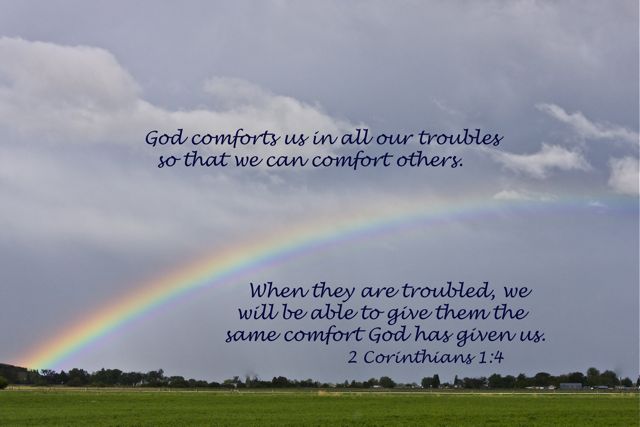
12 April 2013 by Jasmine Chua-
I looked well, physically. In fact, many people who know me now do not believe that I was ever in the “disabled” category. But I was very much an “invalid”. Not in a physical way – but in a mental, emotional, and psychological way.
I suffered from depressive episodes ever since my pre-school years. And because it happened so early, I was groping around in darkness for my whole childhood, teenage and part of my early adulthood. My world was chaotic, lonely, cold, painful, and HOPELESS. And with major depression, came feelings of anxiety, psychosis, borderline tendencies, body image issues, etc. Therapists do not reveal a client’s diagnoses and so I never had a tentative “label”, but I knew that I was in bad shape.
As a child, I suffered from psychological, emotional and verbal abuse – at home and in school. I was alone most of the time, fearful of rejection and paranoid of abandonment. Bullying has left me traumatized especially as a teenager. I used to spend hours locking myself up in my room, crying myself to sleep. As the years went by, I resigned. I believed that I would die depressed. There was no way out.
I started cutting myself at 11 years old. I could remember sitting in a corner of my babysitter’s house, sliding a penknife across my fingers. I didn’t know what I was doing – no one had ever taught me to do that. All I knew was that pain and blood felt good. They made me feel alive. It was far better than the numbness I had always felt. I was angry – at the world, with my parents… but most of all, I was angry with MYSELF.
The interaction between my negative mood and the environment had a downward spiraling effect. I don’t quite remember how and when it happened, but it must have started when my parents had to give more attention to my younger sister who was sickly for the first few years of her life. Though I used to blame myself for not being able to understand, I eventually realized that children absorb everything from their environment, like sponges. Hence, there was no way that I could have understood why my parents had “neglected” me. And when I tried to gain my Mum’s attention, it was adding on to her already stressful situation. Eventually, I turned to food for comfort, gaining tremendous amount of weight growing up. My weight gain did not sit in well with Mum, and she used to tell me how she’s ‘ashamed to have a fat daughter’ like me. She thought it would motivate me to change, not knowing that it hurt me really deeply. Mum had really wanted the best for me, but my depression had pushed everyone away, including her.
All that happened at home had greatly affected my self-esteem and worth. I was socially awkward and I didn’t know how to make friends or respond appropriately. I was “weird”. This then opened the door for bullying, which intensified when I was in secondary school. Throughout the five years in high school, I was constantly taunted with name calling, teasing, gossiping, and alienation. Though I was never physically harmed, the bullying left me pretty traumatized that I had constant panic reactions and night terrors even after I entered college.
I dreaded life. In fact, I wished I was dead most of the time. There was just an unexplained emptiness and a strange feeling of being in a hollow, bottomless pit. It was as if my life is meant to simply get through the day feeling as little pain as possible. I wore so many masks that I could not recognize myself beyond the facades. I was so afraid that people will see the “real” me and I will feel even more rejected.
I had motivation for nothing. Even though I did not fare particularly badly in school, I was never in the top either. I was just cruising through life, though barely surviving. I couldn’t care for anything in life. I was reckless about my safety and health, and apathetic towards my hygiene and grooming. I just existed without a purpose.
I only knew that what I was feeling was “abnormal” at 17, when a well-meaning friend pointed it out to me. “No way, I can’t be mentally ill”. But the more I looked up what “depression” was, the more I realized that I do have a problem. And I needed help.
I only sought help when I entered university at 21. I went through a few therapists, but I did the most work with a clinical psychologist. Thirteen months of therapy under her was hard work. I must admit that I wasn't ready to accept the condition that I was in. All this while, I had thought that I led a "normal" life, and I even believed that I was exaggerating the pain. I thought that my therapists would think that I don't need help. Hence, it was shocking when I was referred to a clinical psychologist and continued therapy for over a year. That was when I began to realize all that I had gone through wasn't "normal". I realized that it wasn't normal to cry myself to sleep, to not even want a crush, and to stay away from building relationships. I also learned to open my heart to someone, knowing that I am accepted unconditionally. I learned to trust, knowing that I am in good hands. It was painful. For the first time, I was told that what had happened to me was wrong and it wasn’t my fault, and that I needed (and deserved) help, that I am valuable and loved for who I am. I also learned to develop intimacy with my therapist, and learned that I can have a relationship with someone. I learned to embrace who I am. Gradually, even my hallucinations diminished. There were times when I had wanted to give up on therapy because of the pain that I had to endure from facing my issues head-on, it was the desperation for wholeness that eventually helped me won the battle. I figured that since I had already come so far, giving up would not be worth it.
At the end of 13 months and 34 sessions, my therapist decided that I no longer needed her help. Termination was painful, and I fought with the fact that I had to say goodbye to someone whose presence I had grown to enjoy. But in the next 18 months after we ended, I realized just how much I had grown. The pit is now a history.
Recovery, though, has its own perks. Human beings are created to resist change, and recovery was a huge change for me. It means going against almost everything that I grew up knowing. I can no longer live through life using my old defense mechanisms while saying that I am “recovered”. I cannot continue to isolate myself and say that I’m “recovered”. I cannot avoid assuming responsibilities and say that I am “recovered”. I was afraid – no, paranoid of change. In fact, I wanted to stay in the comfort and safety of therapy forever. Hence, I tried to hang on to certain aspects of my "disabilities", hoping that my therapist will not let me go. I was afraid of being told that I can. In fact, termination became such a huge issue and I even nearly take my own life when coupled with another major stressor in life!
To be honest, I had a hard time understanding what “recovery” means, because my “normal” has always been depression and psychological struggles. Like a pendulum, I found myself swinging back and forth unable to find a middle ground. I thought that recovery means that I cannot be sad, upset or anxious even when things go wrong. I thought it meant that I must always be on top of my circumstances. I thought it meant perfection. This idealistic thinking made me fearful because I know that I cannot be perfect, and I was afraid that if I will ever feel depressed, then I have fallen into the pits of depression once again.
It took me a long time to realize that being “recovered” simply means that I am human, and being “human” means that I will hurt when there is a wound. Recovery also means that I can be happy when I am happy, sad when I am sad, anxious when there is something to be anxious about. It means responding to the demands of a current situation, and not being completely overwhelmed by it so much so it can linger on for too long. Even though I might still be more vulnerable towards stressful events, it does not mean that I’ve “regressed”.
Recovery also means learning to be myself. To be myself, I had to embrace myself. Over the years, all I had done (or at least tried to do) was to be what other people wanted me to be. Time and time again, I have failed to be what they want and most of all – I have failed to be who my Creator has created me to be. Self-acceptance takes time, but is mandatory in healing.
Many people have asked me what made me so resilient. I don’t really know for sure what made me go on, but I knew the whole time, God has a plan for my life. When I was hurting as a child, I somehow knew that there is someone “up there” who is carrying me. I was desperately hanging on to His promises that I will one day find victory. Even though back then “recovery” felt so elusive, it was always that ray of hope that kept me going day after day. Looking back, I realized that it was the grace of God that was sufficient to see me through. It was the grace that gave me the strength and courage to keep getting up and walk again. It was grace that allowed me to find hope in a pit that is darkened by hopelessness.
I would always find comfort in the presence of God. I remember encountering His love for the first time as a teenager, and I would spend hours in my room basking in His love. It felt strange, because I’ve never experienced love before. It was the knowledge that God was there throughout the storms that gave me the strength to fight on. I knew that I have a Father who loved me for who I am despite how others might treat me. Throughout those years of pain, I refused to blame God for it. I might get angry at God for allowing certain events and circumstances to occur, but I refused to blame Him for “abandoning” me in the pits of depression. The truth is: He was always watching over me.
Another factor that motivated me was because of a vow I had made earlier on in life – that if I were to ever get out of this pain, I will NEVER allow my experiences to go to waste. Therapy has allowed me to see a way out, and despite it being so painful, I was determined to finish the process well. Besides, my passion to be a clinical psychologist has increased tremendously. Seeing how my own clinical psychologist has helped me, and how many people in the world are hurting, I wanted so much to give to others what has been given to me.
To those who are still fighting to recover, don’t give up. Therapy for me was like going through surgery without anesthesia – feeling the pain of the process is part of the healing. The process is long and painful – sometimes more painful than when you first came in to therapy, but remember that as you push and continue to wriggle your way, you will make it out one day. Recovery takes time, and plenty of determination. Do not listen when people simply ask you to "Snap out of it!" or "Why are you still stuck in the rut?" They may mean well, but short-circuiting the process will not be beneficial for you. I liken recovery to reconstruction – you first tear down a building built on a landfill, clear the land, build the foundation, and then the new building. The first three processes do take up a tremendous amount of time, and yet it might seem as if nothing is happening. But remember that they are just as important as the construction of a new building. And once the land is cleared and foundation is laid, the rest of the building comes up really fast. Even though there is no building yet, that doesn't mean no work has been done underground. Hence, do not be discouraged when you do not see immediate results. Do not settle for anything lesser than full recovery. Sometimes, it is easier to compromise half of recovery but that is not what recovery is supposed to be. We are meant to be whole.
Depression does not select its victims. Simply because you are a Christian who loves God, it does not mean that you are spared from this deadly pit. I always find it sad that it is much more difficult for Christians to endure depression because it is hard for others to understand that depression often happens regardless of your faith in God. In other words, simply because you are depressed, it does not mean that you do not have enough faith, or you did not pray enough. Often, this adds on a heavy burden to a back already laden with guilt. Depression is a complex interaction between the brain and the environment, and it is something that many of us experience at one point in our lives. In fact, I sometimes think that depression is a result of an expression of faith, because it is a result of being strong for too long. Depression does not happen over night, but is usually a result of relentless struggle. If we as Christians can understand that it is a mental illness that does not choose its victims (and not the other way round), we can be more compassionate towards our struggling brethren. Think of it like any physical condition including diabetes and cancer – nobody would choose to have them or stay in them. Yet, we often pay so much attention and even money to cure physical illnesses while ignoring the devastating effects of mental illness. Having said that, it doesn’t mean that we are to remain victims of depression. Recovery is an active and conscious process.
Today, I am relishing my freedom. I wake up each morning, looking forward to the day. I am able to smile and be happy. I can make friends and build relationships. I no longer feel like taking my own life. I live a life just like almost anyone else. For the first time in my life, I knew what it's like to be truly happy. I realized that happiness is more than faking a smile and trying to convince myself that I should be happy. I also enjoy the spontaneity of life: to not have to rigidly plan everything ahead, but to be able to just go with the flow and like my clinical psychologist taught me- trust the process.
I must say though, finding support as a “mentally disabled” was very difficult. The stigma towards the hurting is very real, and sad. I sometimes do not understand why is it that we can give so much attention to physical injuries; but ignore emotional wounds. And it is because of this, my desire is to share this message of hope that has liberated me.
People with mental disabilities deserve just as much respect and dignity as anyone else. It isn’t their fault that they are hurting. They just need support and encouragement to fight their battles. I’m glad that I found my freedom.
Life is beautiful.
Note: All of the pictures above were outsourced from other websites, where by the original source of each picture is credited and listed under the References for Pictures. None of the pictures above were provided by the author.
Dear Viewers in Christ, if you find this article edifying to you, please share with your friends or loved ones by using the social media plugs (Share, Email to this article). The Lord will surely bless you as you bless others. May the Lord’s peace and love be with you. Amen.
References for pictures:
http://betterlivinghealthclinic.com/wp-content/uploads/2012/12/depressed-person.jpg
http://loislamelife.files.wordpress.com/2012/04/crying_by_zero_rider.jpg
http://alexanderjmasson.files.wordpress.com/2010/12/crying-in-the-corner.jpg
http://sphotos-b.xx.fbcdn.net/hphotos-prn1/p480x480/71854_507539522622655_1146184721_n.jpg
http://media.salemwebnetwork.com/ecards/scripture-cards/jeremiah-29-11-hot-air-balloon-3-550×320.jpg
http://alaskabibleteacher.files.wordpress.com/2011/09/tears.jpg
http://25.media.tumblr.com/tumblr_lhx6vfeLsz1qguokxo1_500.jpg
http://livinganepiclife.files.wordpress.com/2012/06/nb-031-zephaniah-3-vs-17.jpg
http://creativlei.com/wp-content/uploads/2012/07/1Peter5_10-1024×679.jpg
http://www.aicfchurch.org/wp-content/uploads/2012/10/3.25-freedom.jpg











HI editor,'
My own daughter suffers from depression for a long time, she"s aged 38 now. Very similar to Jasmine's. How can we contact Jasmine (is she now a therapist?). and is she able to help? Pls reply by email.
Thanks
ESeow